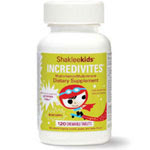
Sugar Cane, Malaysia
I have received a number of questions recently about Natural Sweeteners. Which are beneficial? Which might be dangerous? How do we interpret all of the conflicting information about our choices? Since the inception of this blog, I have been planning to write a series of posts about Natural Sweeteners. Given the steady stream of questions on this topic, I think now is a good time to start!
In the next few posts, I will write some specifics pertaining to several sweetener options, both natural and artificial. Before I do so, I would like to start with the bigger picture. Isn't it always better to step back and really sum things up before we zero in on the details?
I've blogged about What The Bible Says About Healthy Living before. This book was the start of a long health journey for me. It changed my entire health paradigm. In the book, Dr. Rex Russell presents three principles to use in evaluating the diet fads and new-fangled foods that arise almost daily. These principles have proven quite useful for me as no book I've found has been able to cover all the options available. Even if one is able to cover the plethora of products at the time of writing, by the time of publication, several more products make their way into the market. We need solid criteria to decide which products we will buy and which we'll leave on the shelf. That is exactly what Dr. Russell did!
So, let's apply his principles to sugar, sugar substitutes and other Natural Sweetener alternatives. By the way, these are my simple paraphrases of his principles.
1. Eat What God Made. We have been given sweet things to enjoy. "My son, eat thou honey, because it is good; and the honeycomb, which is sweet to thy taste." Proverbs 24:13. Sweetness is a gift! But, just as with synthetic vitamins, artificial preservatives and hydrogenated oils, we encounter problems when we create our own "foods."
2. Eat it as close to the way God made it as possible. Natural foods are truly amazing. I've said this before, but science is still discovering components of raw foods that can not be duplicated in a laboratory. These phytonutrients, trace minerals, enzymes (and things not yet discovered) may be small components of the food itself, but they do irreplaceable work. When we refine or process a natural food, we take away valuable components that were included for a reason. So, for sweeteners, we need to question the manufacturing processes. We need to ask things like: How much was the raw material changed? How high was it heated? Were there molecular restructurings? (I know that last one sounded way scientific, but some sweeteners are totally rearranged!)
3. Eat everything in moderation. Too much sugar, natural or otherwise, is not good for us. Even low-glycemic sweeteners affect our blood sugar levels to some degree. Natural Sweeteners in moderation can be a beneficial part of our diet. But, since we want to keep our blood sugar steady throughout the day, we need to choose sweeteners wisely and eat them sparingly.
I've just scratched the surface here. Stay tuned for Natural Sweeteners 102!
I'd love to know if any of you have read What the Bible Says About Healthy Living. If you have, comment to let me know what you thought of it. Or, if you haven't, comment to share what health books have been eye-opening for you!
Photo Credit: Allposters.com









































3 comments:
I will have to read the book you are suggesting. The Hallelujah Diet was a life-changing read for me. What do you think of Beet sugar? I am so new to eating right and the way God wants..it is overwhelming to go in a health food store that is foreign to you and see all these different options for sweeteners when you were used to your white sugar. =D
Blessings,
Mikki
www.funder5.blogspot.com
I needed to check the box so I would get your response...;)
Hi Mikki,
Yes, I do recommend getting the book, even though it will give you a differing perspective on meat and dairy than the Hallelujah Diet.
Beet sugar... I do not see anything wrong with the sugar extracted from the beet. Seems like a very natural way to sweeten something, right? However, most of the beet sugar marketed in the US is genetically modified. You definitely want to stay away from genetically modified foods... so check the labels for "Non-GMO" or "Organic Beet Sugar".
Hope this helps, ae
Post a Comment